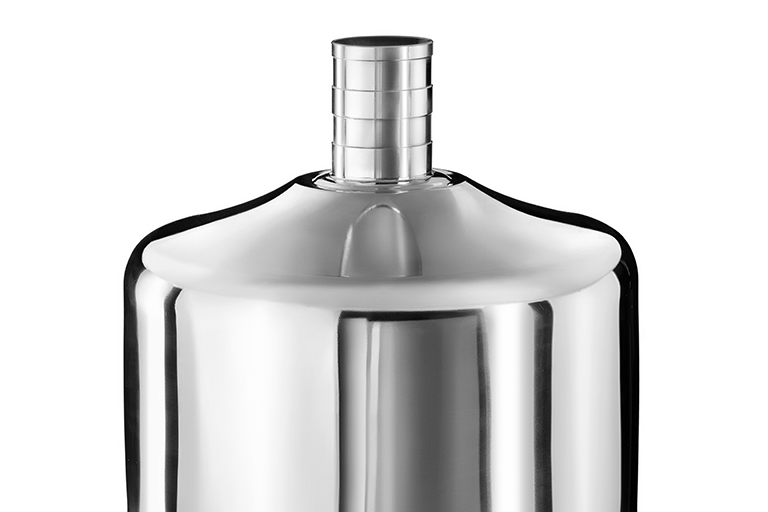As worldwide concerns over the impact of plastic waste on the environment continue to grow, the spotlight has fallen on the sustainability and health effects of bottled water
With one million plastic bottles being sold every minute, the bottled drinks market is responsible for a huge amount of waste, large quantities of which are making it into the world’s oceans.
The majority of plastic bottles used for water are made from polyethylene terephthalate, which is highly recyclable. However, due in part to their rising use, the number of bottles that are successfully collected for recycling is failing to keep pace with production.
Infinitely recyclable and with a far longer lifespan than their plastic equivalents, stainless steel bottles offer a truly sustainable alternative
In 2016, fewer than half the bottles sold were recovered for recycling purposes, with most ending up in landfills or the ocean. As the world continues the search for more sustainable models of consumption, many consumers and retailers are turning to the reliability, hygiene performance and reduced environmental impacts of stainless steel.
Infinitely recyclable and with a far longer lifespan than their plastic equivalents, stainless steel bottles offer a truly sustainable alternative. As the backlash against single-use products continues to grow, repeat-use equivalents will increasingly be turned to.
A bottle for life?
There are also growing concerns over the health impacts of plastic bottles and, in 2018, the World Health Organisation launched a review into microplastics after fibres were discovered in 90% of bottled water. The level of microplastics in these products could be nearly twice as high as that found in tap water.
The study, which looked at 259 bottles, from 11 different brands, across 19 locations in nine countries, found an average of 325 particles of plastic per litre of water sold, while one bottle held concentrations as high as 10,000 pieces per litre.
With concerns over the health impacts and sustainability of plastic bottled water, many consumers and manufacturers are increasingly opting for steel. Deployed in medical and culinary settings due to its many qualities, stainless steel is a uniquely reliable material for ensuring sanitary conditions.
 The Sibolle system is a highly hygienic drinking water container with an unlimited lifespan
The Sibolle system is a highly hygienic drinking water container with an unlimited lifespan
These advantages will increasingly be seen not just on store shelves, but also in the workplace as a company has developed a stainless-steel water cooler bottle that provides ‘maximum protection’ for drinking water.
S’Bottle have developed an alternative to plastic water cooler bottles which can compromise the quality of the contents and are vulnerable to higher temperatures. The company says that their product, the Sibolle, has an unlimited lifespan, is “chemically neutral and does not react with drinking water – even when it gets hot”.
In addition, the “mirror-like surface of the Sibolle reflects direct sunlight helping prevent occurrence of blue-green algae in the water”. The product also requires no chemical detergents to clean, instead its smooth surface and stainless-steel finish means it simply has to be washed in hot water above 62 degrees centigrade to be rendered sterile.
Due to its non-toxic and non-absorbent properties, stainless steel can be sterilised repeatedly without any degradation. Robust, chemically inert, highly-resistant to corrosion and easy to clean, stainless steel is fast-becoming the sustainable go-to choice for water bottles and containers.
Images: iStock, S’Bottle